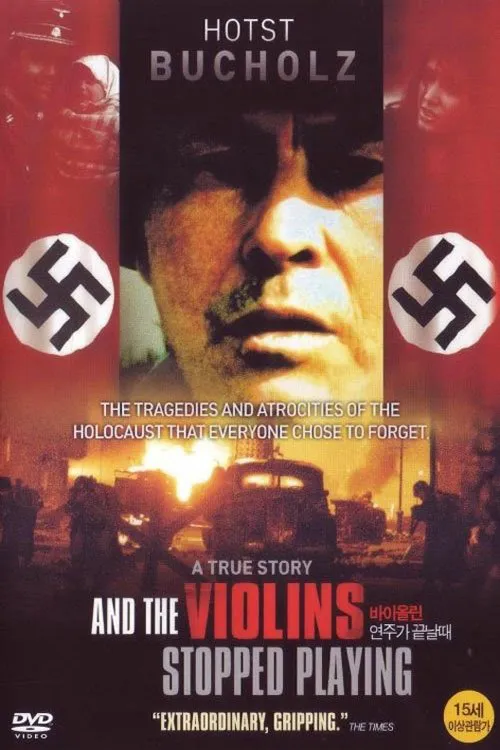And the Violins Stopped Playing

Enredo
In a time when Europe was ravaged by the horrors of World War II, the plight of the Romani people often went unnoticed by the international community. Their struggles, however, were as real as those of the Jewish people and the other persecuted groups. The film "And the Violins Stopped Playing" is a poignant reminder of this largely forgotten holocaust, telling the heart-wrenching story of a group of Romani gypsies living in occupied Poland during one of the darkest periods of human history. The film begins with the Romani people living a traditional lifestyle, roaming the countryside in search of work and trying to maintain their culture in the face of an increasingly oppressive environment. Theirs is a society built on oral tradition, with stories and histories passed down through generations by word of mouth. The Romani are a proud people, fiercely independent and resilient, but their way of life is threatened by the Nazi occupation of Poland. As the war intensifies, the Romani are forced to live in hiding, afraid to reveal their presence to the Nazi authorities who view them as subhuman. The family at the center of the story, led by the determined and brave Katarzyna, must navigate the treacherous landscape of occupied Poland, always staying one step ahead of the Nazi patrols. The once-thriving Romani community is now forced to live in secret, their culture and traditions suppressed by the very people who claim to be upholding the values of law and order. The film takes a poignant turn when Katarzyna's brother is arrested by the Nazis, accused of being a spy and sentenced to death. Katarzyna is devastated by the loss of her brother and the subsequent brutal suppression of her community. As the months pass, the Romani are forced to go underground, their numbers dwindling as many are deported to concentration camps. The once-vibrant culture of the Romani people begins to fade, their songs, dances, and stories lost to the winds of war. The title of the film, "And the Violins Stopped Playing," is a poignant reminder of the musical traditions that were once a hallmark of Romani culture. The violin, the lute, and the accordion are all instruments that were dear to the Romani people, and their music was a source of comfort and strength during times of hardship. As the war intensifies, the Romani are no longer able to play their instruments, their music silenced by the Nazi occupation. The film's protagonist, Katarzyna, is a strong and determined woman who refuses to give up hope in the face of unimaginable adversity. She leads her family and community in their fight for survival, using her cunning and resourcefulness to evade the Nazi patrols and maintain a sense of normalcy in a world gone mad. Throughout the film, Katarzyna's spirit and resilience serve as a beacon of hope, a reminder that even in the darkest of times, the human spirit can persevere. The film also explores the complex dynamics of inter-Romani relationships during World War II. The Romani people were often pitted against one another, with some groups collaborating with the Nazis in exchange for special treatment. Others, like Katarzyna's family, refused to cooperate, leading to divisions and tensions within the community. The film sheds light on the complexities of Romani relationships during this period, highlighting the difficult choices that many faced and the ultimate costs of their decisions. As the war draws to a close, Katarzyna's family and community are left to pick up the pieces and rebuild their shattered lives. The film's final scenes are a poignant reminder of the devastating impact of the Holocaust on the Romani people, a tragedy that was largely overlooked by the international community during World War II. The film ends with a sense of hope, however, as the survivors begin to rebuild their community and preserve their cultural heritage for future generations. In the end, "And the Violins Stopped Playing" is a powerful and moving tribute to the Romani people who suffered so greatly during World War II. The film serves as a reminder of the importance of preserving cultural heritage and the need to acknowledge the suffering of all those who were persecuted during the Holocaust. The film's title, taken from a poem by Wisława Szymborska, is a poignant reminder of the beauty and richness of Romani culture, a culture that was cruelly silenced during one of the darkest periods of human history.
Resenhas
Recomendações


